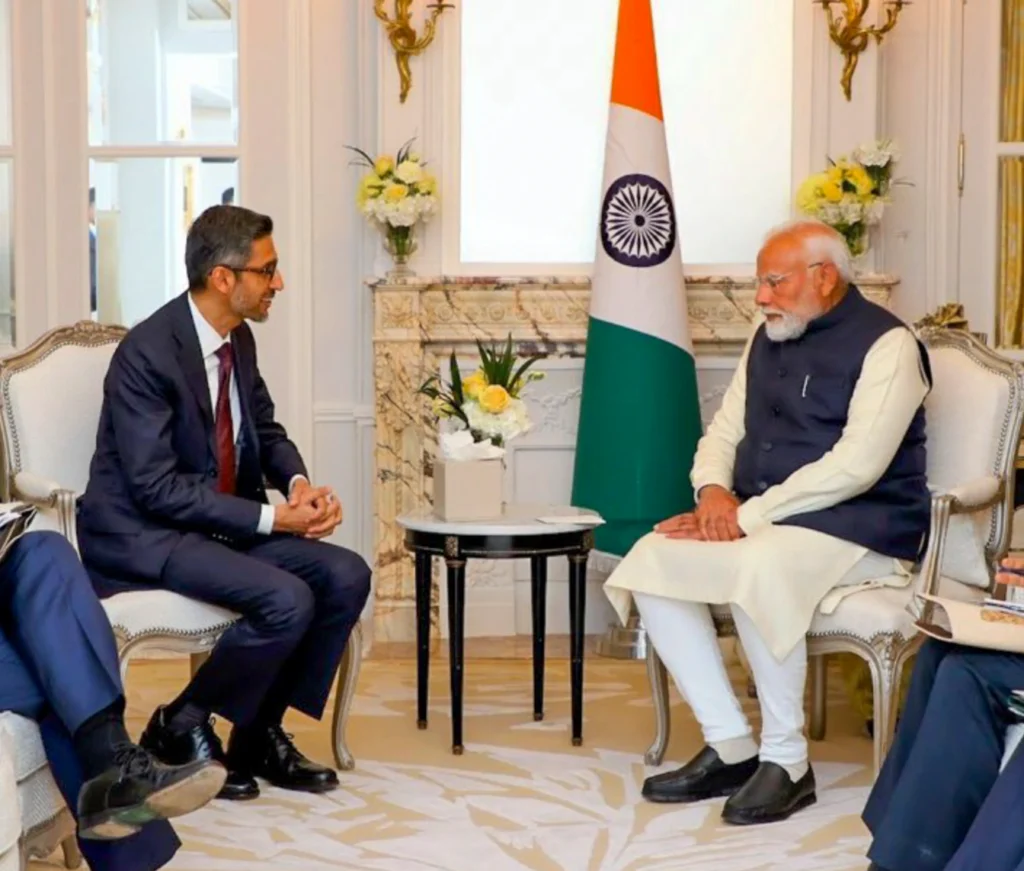In a bold and unprecedented move, Google has announced a staggering $15 billion investment to establish an AI and data infrastructure hub in Visakhapatnam, Andhra Pradesh, marking its largest investment in India to date. But beyond the headlines lies a deeper shift — one that signals not just foreign confidence in India’s digital future, but also the emergence of indigenous technology players like Zoho as serious contenders in the global tech arena.
The AI Power Play: Google’s Investment in India
The tech giant’s investment will fund the construction of a 1-gigawatt AI data centre campus, aiming to become Google’s largest such facility outside the United States. The project includes:
- Subsea cable and fiber connectivity to enhance India’s digital backbone
- Renewable energy infrastructure to power AI workloads
- Training and skilling initiatives to develop local AI talent
This comes amid India’s push to become a global AI innovation hub, leveraging its massive developer base, data availability, and pro-tech government policies.
Why Zoho is Now in the Spotlight
Zoho’s ascent has been quiet but formidable. With over 100 million users globally and a presence in more than 180 countries, Zoho is no longer just an “alternative” — it is becoming a strategic national asset in the eyes of India’s policymakers.
Key factors boosting Zoho’s appeal:
- Data localization: All data hosted in India, aligning with regulatory goals
- Affordability & accessibility for SMEs
- End-to-end software stack: From CRM to word processing and email
- Strong R&D investments in AI, IoT, and robotics
While Google’s investment showcases India as a fertile ground for AI innovation, Zoho embodies the indigenous tech capacity India aims to nurture.
A New Competitive Landscape
The contrast between Google’s infrastructure-heavy play and Zoho’s software-first approach reveals the two-speed evolution of Indian tech:
- Global giants like Google bring capital, cloud infrastructure, and AI expertise
- Homegrown firms like Zoho offer sovereignty, cultural fit, and political alignment
This dual-track growth could redefine India’s digital economy. If policy frameworks continue to favor local players — through preferential procurement, data mandates, or tax incentives — firms like Zoho may find themselves competing not just in India, but globally, as trusted sovereign alternatives.
What’s Next?
With both foreign giants and local startups investing heavily in India’s AI future, a few key trends are emerging:
- Hybrid ecosystems: Multinationals may be required to partner with local firms
- AI for Bharat: Localized solutions will become a priority for rural and SME markets
- Public sector digitization: Government agencies may increasingly adopt Indian software solutions
- Global playbook: India’s model of combining FDI with indigenous innovation could become a template for other emerging economies
Final Thoughts
Google’s $15B bet is a vote of confidence in India’s future — not just as a market, but as a global AI powerhouse. Yet, the real story may lie in how India chooses to balance foreign investment with domestic innovation. Companies like Zoho, once seen as underdogs, are now center stage.
Whether the future is driven by hyperscale foreign investment or homegrown ingenuity, one thing is certain: India is no longer just the world’s back office. It’s becoming the front line of global tech.



